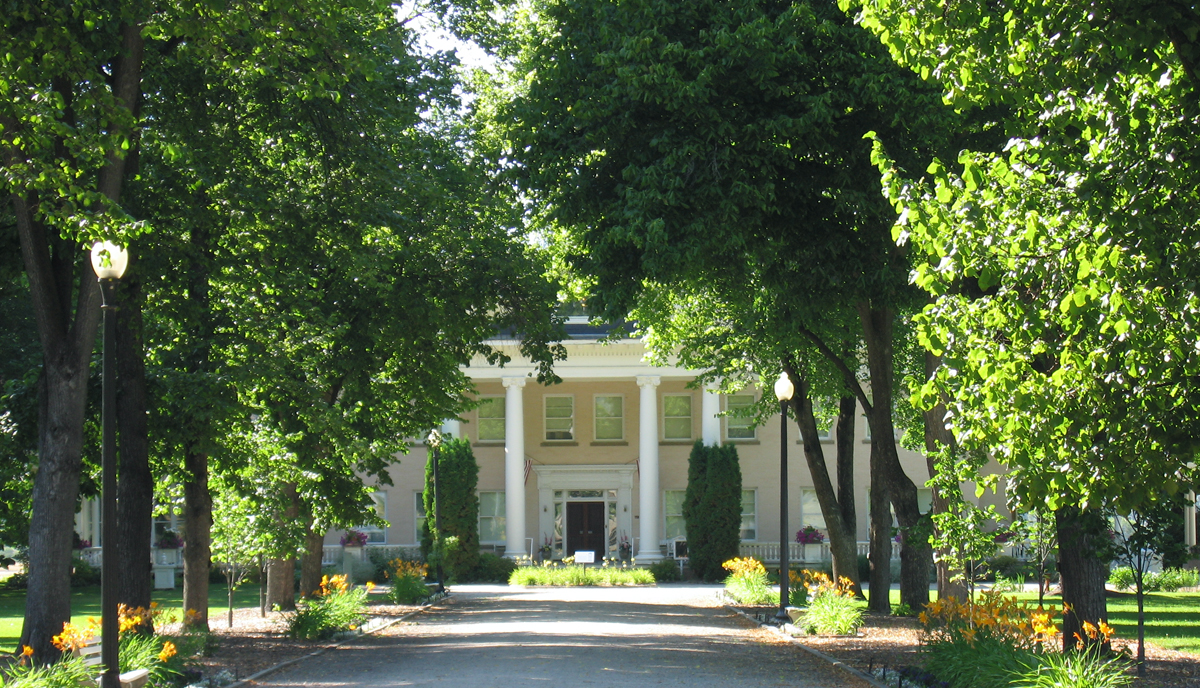Most people think doctors are wealthy, even doctors do. Why do they have this perception? Because doctors make a lot of money (top 5%), they are very smart (only the top students get into medical school), they are hardworking (that’s what it takes to get through our training), and they are resilient (otherwise how could we work 80+ hours a week). With that combination, they should become wealthy.
So what’s going wrong? Why do so many doctors not live up to the perception and becoming wealthy? They have the perfect set of parameters to become very wealthy, yet they are often broke at a higher income level. When one struggles to make the payments on a his and her set of $120,000 Teslas, are they really any better off than the family who struggles to make the payments on their $13,000 Chevy Spark?
In both cases, struggling to make car payments means the car is not affordable in their budget. If making their monthly payments is a struggle, then they are broke, not wealthy.
Many doctors that I am in contact with blame being broke on their student loans. But when those student loans make up less than half of their outstanding debt, the student loans are not the problem. In fact, the student loans are rarely the problem, they are just an easy target to pin it on. Blaming the issue on an outside uncontrollable force becomes an easy way out of owning the problem. After all, “I HAD to borrow that money to get where I am. I HAD no choice.” But they did have a choice when they chose to buy those Teslas. Why blame the cars, or their own choices, when they can blame “the system.”
Following are six things that are keeping doctors broke. Fixing these issues will create wealthy doctors who can live up to the perception America has of them.
1: Acting wealthy before becoming wealthy.
Here is the problem we face: One can either act like a millionaire, or become a millionaire, but not both. Millionaires don’t get that way by spending all their money as fast as they earn it. When people talk with me about their finances, I see this problem frequently. They vacation like they are multimillionaires, but they actually have a net worth that is less than zero. The person in the free soup line often has a higher net worth than young doctors do; at least they are up to a net worth of zero.
First become a multimillionaire, then you can spend like you are one. Staying at a $1,500 a night vacation resort when you haven’t even paid off your student loans is not the path to wealth.
I understand doctors have lived on a small income for a long time during training and once they start their attending job suddenly they have a big income. But the big income needs to first be used to catch up financially for all those lean years. Pay off the debt, save for retirement, live in a reasonably priced home for their financial situation (negative net worth) and work towards becoming wealthy; not just looking wealthy.
Try this instead
Set a plan in motion to become a millionaire. Then after you reach that goal, loosen up the purse strings and start living like a millionaire, because now you are one. Earn first, spend second.
2: Doctors suffer from Debtabetic Neuropathy.
Debtabetic Neuropathy is something I discuss in my book The Doctors Guide to Eliminating Debt. The short definition is doctors spend so many years borrowing money to live on during training, that they have become numb to the deleterious effects of debt.
Doctors in training continually borrow money, throw it onto the debt pile, and notice that nothing bad happens. Our debt payback is deferred until later, when the big bucks are rolling in. We are prone to continue borrowing money the same way after our training has ended. The first month we have an attending paycheck, we are out borrowing money to buy a very expensive car that we cannot yet afford. We must fight off the urge to borrow money to get more stuff. When we are charged interest on everything we buy, we are paying more than the purchase price. We should be looking for discounts, not ways to pay extra.
Try this instead
Except for buying your house or business, don’t borrow any money for anything. Borrowing to consume is not the path to wealth.
3: Doctors often don’t use their delayed gratification skills.
Becoming a general surgeon requires delaying gratification for four years of college, four years of medical school and five years of residency. After thirteen years of delay, we stop using our delayed gratification skills.
Now that we have finally arrived, we want everything immediately. Many doctors behave as if they just won the lottery and start spending/borrowing like crazy. Why do we lose our patience as soon as we have our own patients?
I remember as a kid when I saved up all summer to buy a bike. Buying that bike felt so good. I earned it. But we forget that part of the pleasure of buying something is the feeling of accomplishment that working and saving for that goal provides. For most of us, as soon as we get our first attending paycheck we go shopping. Soon we are deep in debt, way past the student loan burden that we blame our troubles on. We must then work more hours, find side gigs, and moonlight to keep up with all the payments.
A large component of burnout is putting ourselves into a financial situation that requires a high income. We no longer have room in our budget to take time off.
Try this instead
Use that muscle of delayed gratification you built so well during your training years. Make financial goals and then save the money before you make a purchase.
4: Doctors spend way too much on cars.
Automobiles are an American status symbol. As a teen, a car is a symbol of freedom. As an adult, a car is often a symbol of wealth.
I remember talking with one doctor who was struggling financially. He leased an expensive, European, convertible, sports car. He chose that car because he was told that the patients needed to see him in a car that made him look like a successful surgeon. But he parks in a parking garage a block away from his office. No patients ever see him in that car.
He struggled to make the payments on a car that didn’t actually serve the purpose for which he bought it. It reminds me of an old quote from Will Rogers:
“Too many people spend money they haven’t earned,
to buy things they don’t want,
to impress people they don’t like.”
Try this instead
Buy a reliable, inexpensive car that you can pay for with cash. Then drive it for at least ten years before buying another reliable, inexpensive car. Affording the car payment is not the same as being able to afford the car.
5: Doctors spend way too much on their McMansions.
Houses are another big-ticket item that can cause financial trouble way into the future. Buying too much house that is continually being refinanced creates a never-ending stream of payments, which is a sure way to hold us back from becoming wealthy.
The majority of a house payment is interest. That is the money that makes the bank rich, not the doctor. The bigger the house, the greater the expenses of interest, property tax, insurance, and upkeep will be, and the lower the bank account balance will be.
We often become so attached to our house that we won’t consider selling it as an option to reduce our expenses. Too much house is hard to downsize in the future.
Try this instead
Rent when you first move into a new town until you are sure you will be staying, this is usually after one-two years on the job. Then buy a house because it fits nicely into the budget, not because you deserve it, or the bank thinks you can afford it.
6: Doctors don’t save for the future.
Once all our training has been completed and we jump up to our attending salary, our first instinct is to spend it all. After all, we have worked long and hard to get where we are. If instead we start maxing out our retirement plans and IRA accounts, and formulate a plan to pay off our student debt early, we will be on our way to a wealthy future.
If we begin borrowing money and set ourselves up with several monthly payments, we will not have the resources to save for the future. We will reach our 50s and wonder where all the money went.
Many doctors contact me for financial coaching when they start nearing retirement after realizing they haven’t saved any money for their future.
Try this instead
Set up the payroll deductions needed to maximize your retirement plan contributions before you get your first attending paycheck. You will still feel a raise in pay, you won’t miss the invested money, and your financial future will be secure.
There is no reason for doctors to be broke. This is fixable, but it is much easier to start out right, than to make changes later. The next round of residents are about to become attendings. Now is the best time to set up your future success. Start by reading The Doctors Guide to Starting Your Practice/Career Right and be sure you get off to the right start.
Take the road less traveled and achieve the financial future you deserve.






I am a 69-year-old pathologist who was disabled at age 45 by a brain injury secondary to a–what else–drunk driver MVA. I was fortunate to have a lifelong disability policy of $60,000 yearly, but without COLA. I have just over a million in savings, which I attribute to several factors: first, never had kids. Second, went to a state school which didn’t leave me with crippling debt. Third, I’ve always had a financial adviser and, having no interest in “managing” my money personally, have usually realized at least an 8% annual growth. Finally, perhaps most importantly, I’ve never “lived up” to my income ($180,000 the year I was disabled). Perhaps putting myself through college, living in $60/month garage apartments (in Texas, with no air-conditioning!), and only gradually allowing myself better digs as my education progressed, have ingrained grinchiness in my spending (although I spend lots on those I love). I’ve never spent more than $225,000 (7% interest) on a house, bought all my cars (used) with cash. Indulged in scuba diving (Red Sea, Fiji) and photography. Now, I’m going to tick off some people here, but I’ve observed that a significant number of male colleagues have overspent (I’m assuming) on houses, cars, and so on at the behest of their wives, who apparently think these things assure a certain social status (EEEK—duck and cover!!!). Just sayin’
Love it!
The idea of the article is not to retire at 70. On the contrary, you could retire before the expected age of retirement if you followed this simple advice… you would then enjoy your life even more.
While divorce divides by two at the very least, it is not as easy a risk to avoid as the others.
You can’t diversify, for one! And that’s important because people change, can become obese or addicted or suffer mental illness.
This is the luck part of the equation. There are many whom think they picked well when they are really just very lucky.
In my day, before financial blogs, most medical students had no idea which specialties would be lucrative. And that changed over time besides. Luck again played a role.
Just remember, the wealthy don’t work for money 🙂 I’m now on the path to retiring at 48.
The wealthy never retire!
All that’s required is the passage of time, an inner calm, ample diversification and a minimization of transactions and fees.
Warren Buffett
Why save all that money so you can retire with millions of dollars in your bank account at 70 years old? What’s next, go to Florida and wait to die? I think one should have a balance, and as a physician, I would rather work hard, accumulate assets, and experience what life has to offer. My main critique of this article is that it doesn’t provide any new ideas for creating multiple non-clinical income streams like starting a life sciences company, creating digital content, eCommerce, telemedicine, etc.
Chinweike,
Your main critique of the article is that it doesn’t tell doctors how to make more money? Yet you started by saying we don’t need to save so much money. The article isn’t even about earning more money, it is about spending less. Doctors don’t need to make more money to not be broke, they are already one of the highest paid professions around. Doctors need to learn to use the money they have in a more useful fashion.
Precisely
I live in Florida
I am seventy-seven years old
I am not not sitting around waiting to die
I avoided investing in things I knew nothing about, even though I thought I was so smart
One house
One Spouse
One job
Don’t remember where I read this advice, but it works
Live below your means and learn to find great joy in simple pleasures (like only one spouse, one house, one car)
Understand (i.e. obey, admire, and worship!) compound interest
When young, take risks but only against your own potential (i.e. challenge yourself)
Invest only in passive index funds and never ever sell…till you’re retired
You’ll make more than you ever need…or want, if you do the above
Remember, no matter who or what you are, at the end you’re coming home to depend on your family!
Above all, seek personal growth, spirituality, and peace
4eye, very well said. Thank you.
Well said. When I got my first attending job, my salary literally quadrupled. We bought too much house. The best thing that happened in the 4 years in that job was meeting a physician couple who taught Dave Ramsey’s financial course. While we are not religious, the basic tenets he teaches are very like what you have said. We now owe only on our (just refinanced at a very low rate) mortgage on our reasonable house, and the tag end of my student loan. I’m funding retirement well (doctors start so late-we really have to jump on it), and we live like we want to live (though quarantine killed all our travel plans last year). My advice to medical students and residents who come through my unit is always to continue to live like a resident when they get that first job. Get out of debt as soon as you can, especially high-interest debt like credit cards. Don’t go crazy!
Dave Ramsey is the man.
All very good points above, and I agree with much of the above. Student loans are not the only problem, but they are a problem. No other profession requires the debt and sacrifice that a physician assumes, but the economic rewards or practice are often much less than stellar, especially for primary care. Then there is the issue of the ridiculously long years of sacrifice related to education and training. Most docs don’t get a real job or “a life” until they are 30-35 years old. By that age, our college friends who went to law school have just made partner and our friends who were in finance are now VPs or managing directors at a bank. You mention the “time value of money” – excellent point. Most people have started their careers by 22 yo, and even people in elite fields like law and finance start by 25-26 yo, but hardly any docs can start building any kind of future into age 30-35 – we docs start in a deeper hole than anyone else, and many of us, especially in primary care, will never fully recover. Of the multi-millionare docs out there, how many are in primary care fields? Very few, I would bet. Medical education needs to be less expense, much shorter, and private-sector primary care docs desperately need union representation. I’m 54 years old, in primary care (Internal Med), I drive a 6 yo Honda, and live in a very modest, 50-year old, one-bedroom apartment. I’ve never felt secure enough to own a home, thanks to the financial pressures and insecurity brought on by corporate medicine. On the bright side, I have no debt, and I do have some modest retirement savings. I’ve been preparing for the day that managed care and corporate medicine might completely destroy my career and financial prospects. If that happens, I’ll be OK, but only because I’ve been living on less than 40-50K each year for the past 24 years since finishing residency.
Excellent words of advice and more education. I Appreciate everyone’s insight!
A couple things I’ve learned and after 14 years of practice see unmentioned..
1. Being in a culture of needing to know everything as a physician, sadly it’s our expectation, we lack training and education on financial planning.. so get educated! And seek advice of many financial advisors that have proven histories of success. There are many financial opportunists that seek to bleed you for your higher than average incomes.
2. Constantly find ways to create passive income, working smarter NOT harder.
3. Be cognizant of burnout.
Best wishes to all in your paths and hope for a fruitful early retirement!
Abram, thanks for adding some more reasons. I didn’t have enough room in the article to list everything.
Cars are one of the worst investments. However, Teslas seem to have maintained their value over time (so far). There is little to no advantage in buying a car these days. Keeping a car for 10 years is admirable, but the outdated technology and maintenance from wear and tear are big minuses for me. Instead, I lease a vehicle for two or three years, write it off as a business expense, including maintenance (if not covered under warranty) and always have a “newish” car to drive. Of course, the flip side is that over time, the money I pay for each new lease could be invested and perhaps allow me to retire earlier. But I feel like I have to live a little. For me, I’d rather drive a new “worry-free” car every three years than to drive one new car every 10 years. But, again, that’s me.
Jason, As long as you can afford to do it the most expensive way, then more power to you. You can have a new car every year for that matter when you have plenty of money to meet all your goals. Ten year old cars rarely have technology problems and are almost as worry free as a new one. You can write off the car and all the maintenance even if you pay cash for it, the lease doesn’t help with that. There is an advantage to buying a car these days, it is the hundreds of thousands of dollars you save over renting (leasing) a car your entire life, which could lead to retiring a few years earlier. There are expensive ways and inexpensive ways to do things, but in the end, you should be happy with your choice. It is not always necessary to do things the cheapest way.
I would offer for perspective that cars are not investments, they are consumptive purchases. They are best viewed as a necessary evil, an obstacle to achieving one’s financial goals. If cars are your thing, OK that’s understandable, but indulge that only as much as is prudent. The bigger your war chest gets, the more indulgent you can be whilst retaining prudence. But I’ll suggest that it’s helpful not to think of cars as “bad” investments, but to think of them as not belonging within a 100 mile radius of the word “investment” (does not apply to Mecum auctions, etc–that is actually investing, like art collecting, but clearly that’s different in kind from purchasing a daily driver).
After working and serving the needy for close to 49 years, I agree with all the above points. Apart from these, many doctor friends think they are smarter to do their own investments. I was contacted by a well-known financial advisor who worked for a very large financial institution during the 1980s. My son ( a graduate of finance at that time — went on to become the CEO of one of the largest firms in the world) told me never ever to try to do my own investments. This was a prophecy. Three of my friend lost close to one million dollars EACH. My no-touch approach paid off well. Apart from my son, the financial advisor he chose turned out to be a genius. Each dollar invested for retirement has yielded handsomely for me to retire comfortably. Yes, some of the real estate investments in the right places have also helped to get huge returns. My advice, keep it simple. Give your portfolio to a well-known finance person. Do. not believe those 12 or 18% returns that they promise. Never ever buy annuities. The only person making money is the one who is selling it to you.
We have so much pent up demand that we have to keep in check. Wealth takes a long time to build and it takes discipline. Great article!
I am now a multimillionaire doc (only 8 figures). My financial advice to my kids and grandkids and anyone who asks and listens – one of my 3 kids listened and has a house bigger than mine – NOW) is:
1). Only one spouse. Choose well and marry not just her but her whole family (and their fiscal ethic).
2). Only one car every 10 years. Maintain well, drive to make it last, buy bargain car but very best tires, and best winter trends too if you live in Snow land.
3). First house — modest & mortgaged! Upgrade when mortgage paid off and able to pay cash while smiling. And #4 done!
4). Remember the Time value of money. Fully fund every possible “tax sheltered” retirement vehicle from day one (401-K, All IRAs for both spouses and retirement plans) and NEVER withdraw a cent until retired. And in addition save at least 10% (until you have an emergency fund equal too a full year of income) in an automatic way if possible.
5). Budget and follow it. Use “Plastic Money” only if balance always paid monthly and no interest allowed to accrue.
John Stone, Very good advice. Sorry all your kids didn’t do it.
Buy bargain and live bargain and then what….just to Live lavish when you are 70 with multiple comorbid conditions?
The issue with Americans is they have no balance and lack shrewdness. Be smart and have fun now while making plans for later. Most important thing now is to continue or regain a good health.
No i don’t want to drive a Porsche when I’m 70. If I do I hope my ASCVD risk is less than 7%. I rather drive my Porsche now and act smart and still drive it later.
You will die and leave all the so called wealth behind. What’s the guarantee you are here tomorrow?
Live a balanced life, get what excites you and not the lust that drives most. And as you progress lay down the foundations to support you in your twilight years.
Completely agree! Gave away my 911 at 56 after 11 fantastic years. But still keep my Ducati Streetfighter. As a surgeon the real issue is to keep complications at the lowest possible rate. I do not plan to retire anytime soon as long my patients do well.
I think that the voices of fiscal prudence are not thinking they’ll take their nest egg to heaven, so much as they’re hoping to leave behind a legacy of a widow/widower who does not have to be stressed with worrying for money the rest of his/her natural life, a reasonable inheritance for their children who hopefully have bought into the fiscal responsibility philosophy and can use the inheritance to bolster their own investments, an endowment for their alma mater, a big lump sum to their church or favorite charity, founding a memorial scholarship, maybe even setting up their own foundation and the like. And not to be remembered as “the guy who did all that”, but because that is its own reward, an intrinsic good. Having a mindset like this seems to be one that generally eschews what we might call the trappings of luxury. It’s about loving the philosophy that built your family I think. Just some food for thought.
Is this John Stone from UMASS Med school?
hahha–I was wondering the same thing!
Have done everything you have written — including a competent financial advisor
Am 66 years old , having retired 3 years ago
Am a millionaire several times over and have two homes — one in Vancouver, Canada
I could buy his and her Tesla’s cash . Choose not to . Spend my savings only using interest income ( goal is to never touch principle) .
My goal is to travel the world and make memories instead of buying “things”.
This philosophy has worked for me — I respect those who have other ideas of retirement
Rakesh, congratulations on living a life you love.
You sound like me. One just had to discipline themselves to follow through. It was great advice, just hope you get physicians take it to heart.
I agree with most of this advice, particularly about avoiding unnecessary debt, delaying gratification, and not overspending on autos (I have driven only Toyotas since 1987).
However, in states with adverse malpractice climates, some physicians may choose to buy more home than they need to be able to shelter funds in their homestead equity if they must file for bankruptcy due to a large judgment against them.
David, yes doctors do that with their homes. I’m not sure it is wise though. Guaranteed loss of a huge amount of interest and expense vs protecting against an event that rarely happens (rare for a doctor to lose a malpractice case higher than their insurance limit) is probably not a good bet.
A very important issue that I have seen in my 40 years of medicine, contributing to dissipating physician wealth, is divorce. I do not know the percentage of physicians who are divorced, but it is a high percentage, and one or a couple divorces, are very destructive, not only financially, but emotionally, as well. Our industry needs to have better emotional health preventative care, as well as more realistic work hours.
Margaret, you are right, divorce is a devastating event one should strive to avoid.
Superb article, Dr. Fawcett. Sadly, the docs who are caught up in this endless quest for “stuff” won’t listen to a word you have said. Not one.
I am retired (technically “on indefinite leave”) from my radiology group that was recently bought out by the local megahospital conglomerate. The rads to a man are miserable, but could only see the dollar signs dangled by the new management. There are guys past seventy who are still slogging away full-time (one of them has seven mouths to feed thanks to two adult children who are total disasters) and all they can think about is how to pocket yet another $50K or $100K.
My wife has lung cancer and there’s nothing like a crisis to bring home the message of what’s important and what isn’t.